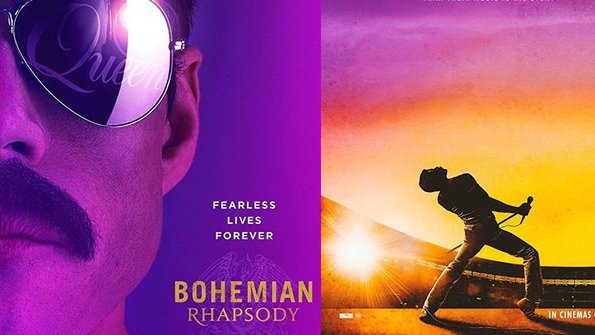Rami Malek sets the stage alight in Bohemian Rhapsody
This article contains spoilers if you are one of the only 15 people who have never heard of Queen.
By Sherif El Hakim
Actor Rami Malek electrified cinema screens all over the world with his breathtaking and jaw dropping portrayal of the controversial Freddie Mercury in the award-winning biopic ‘Bohemian Rhapsody’, released in November. His performance truly deserved a nod from the Academy.
The film depicts the meteoric rise of the acclaimed musical band Queen, and was released in cinemas on November 14.
Malek’s performance, which earned him a Golden Globe and British Academy of Film and Television Arts (BAFTA) award last month, left audiences wondering if this was real life or just fantasy. His adaptation of the character was flawless due to his ability to mimic Freddie’s movement on stage, as well as his ability to highlight his emotional vulnerability and drug infused lifestyle.
The plot of the movie focuses on Mercury’s extravagant, yet emotionally draining life, as well as the roots of the band Queen, their success and struggles. In what was a roller-coaster of a music career the movie shows how Freddie had auditioned to founders Brian May and Roger Taylor in the parking lot of a bar in order to form the band.
The band began to draw a crowd even before Freddie decided the next step in their careers was to release an album. The scenes that follow next show how each member would contribute to a song in order to begin their path to stardom, which gave the audience a sense of being a part of the creative process. At this point Freddie begins to drift away from his long-term lover, as he battles his sexual identity with himself.
As the band gain international recognition, Freddie’s habits of partying and lack of professionalism cause a rift between the members, leading to their divide, as eventually Freddie decides to go for a solo career.
It is not till Freddie’s realization of the importance of his former band-mates that he begins to try and make amends in order to perform in the 1985 Live Aid spectacle. The movie ends with a flawless Queen performance at Live Aid, in what is arguably the most iconic performance in history.
The movie, however disappoints when there is a lack of time allocated to see Freddie’s downfall and why his solo career didn’t work out. Furthermore, it would’ve been interesting to see how Queen had progressed as a band and the build up to Freddie’s death.
We are able to see Freddie’s lonely life and need for compassion throughout the movie due to Malek’s superb variety of emotions on display. Malek is able to gain sympathy from the audience about his struggles to overcome accepting himself as a homosexual even in his character’s downfall. Where many would usually turn against him, they pitied him instead, which in itself as an accomplishment achieved by the actor.
Queen’s band members also praised Malek for successfully bringing Freddie’s personality to life.
May, portrayed by Gwilym Lee, was the lead guitarist of the band and was previously an astrophysics scholar. Taylor, depicted by Ben Hardy, was the drummer and a dental student. Deacon, played by Joseph Mazzello, was the bass guitarist of the band and was the final member to join.
The musical performances in the film were near identical to the original songs, which encouraged and enabled audiences to sing along and stomp their feet. The most famous songs they sang, wrote, and produced were performed and their creative thought processes were revealed, stripping down the genius of Queen.
Freddie is regarded by many as one of the greatest of all time performers, due to his vocal range and flamboyant lifestyle. He was born in Zanzibar but later moved to the United Kingdom with his family, where he began working as a baggage handler at Heathrow Airport.
Born Farrokh Bulsara, he later legally changed his name to Freddie Mercury in order to complete his transition to a new lifestyle. At a time when being homosexuals were not accepted in society, Freddie defied the stereotypical routine of a male in the 70s, despite being engaged to his long-term girlfriend Mary Austin. Freddie later died of complications from AIDS in 1991.
The film was nominated for five Academy awards including Best Film and Best Actor (Malek).




